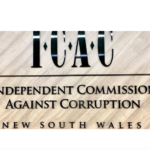Should ICAC Get the Power to Press Criminal Charges?

It is a generally accepted rule that only prosecutorial bodies like the police and Director of Public Prosecutions (DPP) have the power to instigate criminal proceedings.
But in a move that turns the norm upside down, NSW Attorney-General Gabrielle Upton has proposed giving the ICAC and Police Integrity Commission (PIC) – both investigatory bodies – the power to instigate criminal proceedings.
The proposal has left many concerned that principles of justice and fairness could be eroded if these bodies are given the power to prosecute – particularly in light of recent decisions which found that the ICAC has acted outside its powers in a large number of other investigations.
The Proposal
Ms Upton has proposed to amend the Criminal Procedure Act 1986 (NSW) to give the ICAC and PIC the power to press charges for common law offences.
If passed, the Bill will allow ICAC and PIC officers to serve a court attendance notice on an accused person, which can then be filed in court to initiate a prosecution. The case will then be referred to the DPP to prosecute the case.
According to Ms Upton, the amendments will assist in stamping out corruption in a timely manner.
Background to the Amendments
The proposal comes after two recent Local Court decisions which found that ICAC did not have the power to press charges against Labor Mining Minister Ian Macdonald, who was accused of misconduct in public office after allegedly granting a coal expiration licence to his friend’s company, Doyles Creek Mining, without the company having to submit a tender. The company was chaired by former union boss John Maitland, who was accused of being an accessory.
However, Local Court Magistrate Greg Grogin ruled that the ICAC could not institute proceedings against the men by serving them with court attendance notices – despite this being a common practice within the organisation.
The DPP has since taken over the proceedings, meaning that the men are likely to be prosecuted in any event.
Concerns Raised
Many have raised concerns about the Attorney-General’s proposals, arguing that giving ICAC and PIC officers the power to commence proceedings could undermine principles of integrity, justice and fairness.
Barrister Charles Waterstreet is outraged about the proposals. Speaking to the media, he said that ‘there should be an intervening prosecuting body that can independently assess the value of the investigation.’
That view is shared by former Director of Public Prosecutions Nicholas Cowdery QC. In a recent article, Cowdery referred to a speech by former NSW Premier Nick Greiner when introducing the ICAC Bill in Parliament, during which he stated that:
‘the proposed Independent Commission Against Corruption will not have power to conduct prosecutions for criminal offences … It is important to note that the independent commission will not be engaging in the prosecutorial role. The Director of Public Prosecutions will retain his independence in deciding whether a prosecution should be instituted.’
Mr Cowdery says that the role of investigatory bodies like the ICAC is to ‘uncover corruption’. By contrast, prosecuting bodies are charged with acting:
‘independently of any political policy objective or personal stake and is constrained by the criminal law, the prosecution guidelines, the provable facts and the requirement that any evidence relied upon be legally admissible in a court’.
On the flip side, some have expressed the view that the concerns are unwarranted. Barrister Bruce McClintock SC, who recently sat on a review of the ICAC’s powers, says that:
‘The reaction to the amendments has been extraordinary and shows serious misunderstanding of the existing system and the limited purpose of the proposed change.’
Ms Upton has also hit back at critics, stating that it is a ‘common sense amendment that makes the law clearer and closes a legal loophole. If Labor doesn’t support this, they are anti-ICAC.’
But despite the Attorney-General’s reassurances, it does not look like the Bill will be passed in its present form. Rather, the government has indicated that amendments to the Bill will make it clear that the ICAC and PIC will only be able commence proceedings if the DPP approves the decision to do so – which is a significant concession.






